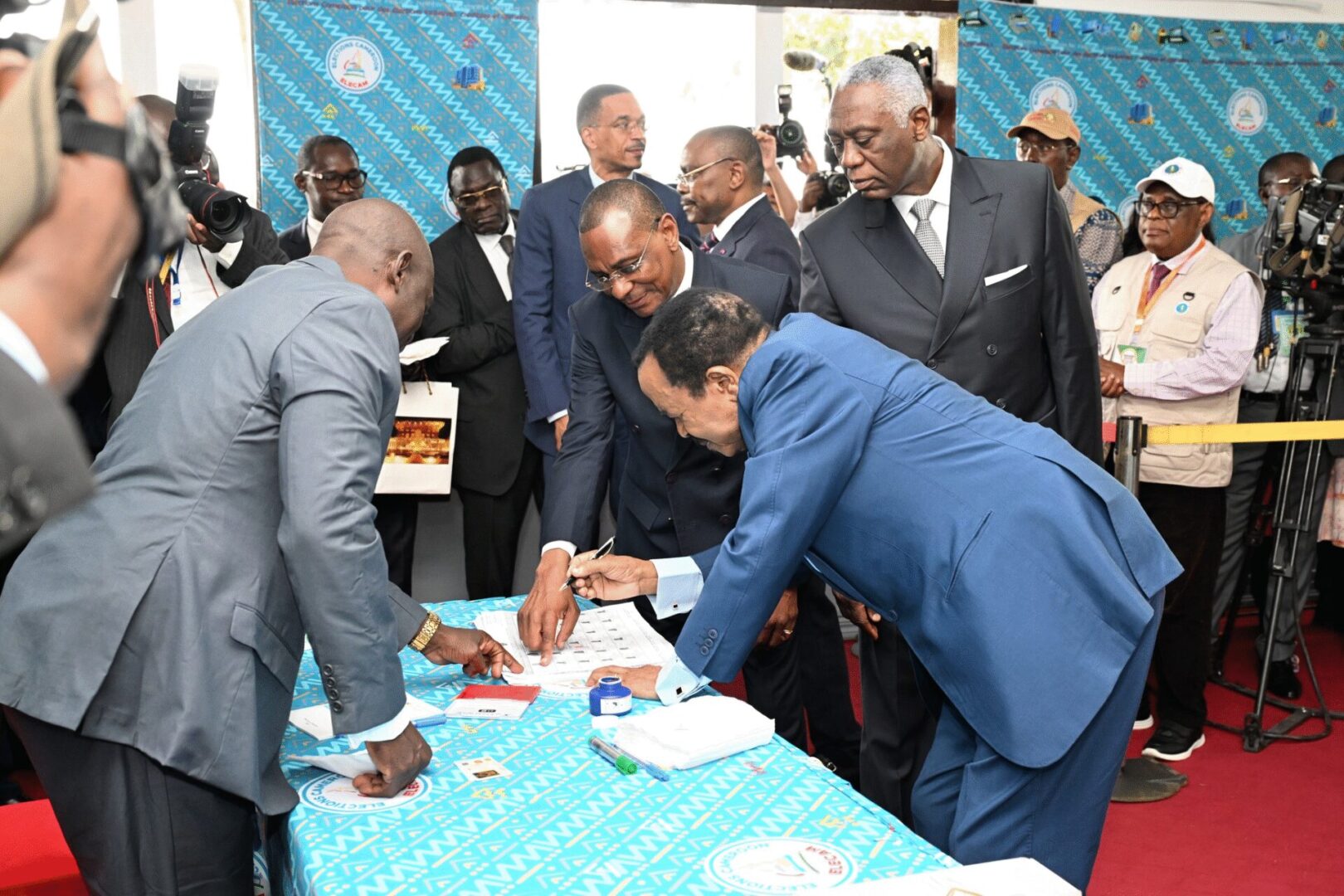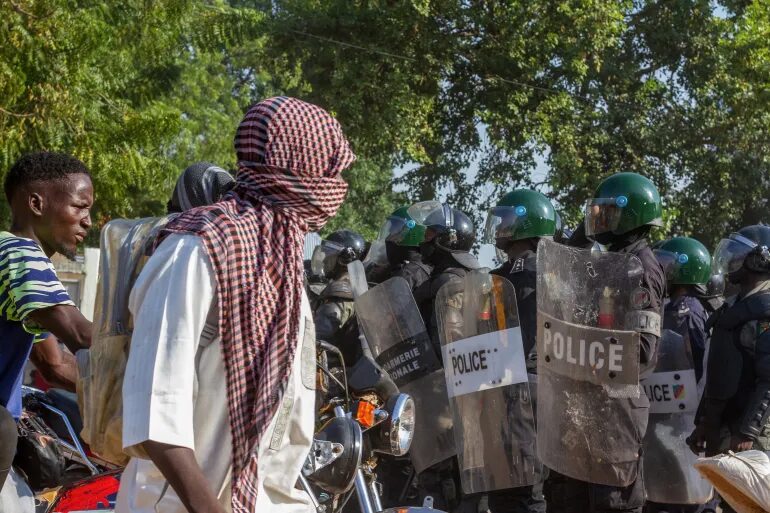Cameroon erupts after the world oldest president claim victory
Jamaica Live International News– | Oct 27, 2025
Protests flared across Cameroon after the Constitutional Council declared President Paul Biya, 92, the winner of the October 12 presidential election, extending his four-decade rule into an eighth term. Security forces clashed with demonstrators in the commercial hub of Douala/Yaoundé on Sunday, leaving at least four people dead and several officers wounded, according to regional authorities.

The Constitutional Council announced on Monday that Biya secured 53.66 percent of the vote. His closest challenger, former minister and one-time ally Issa Tchiroma Bakary, received roughly 35 percent, despite earlier declaring himself the victor based on self-reported tallies. Bakary has alleged systemic manipulation and called on supporters to mobilize against what he terms falsified results.
Biya, who has governed since 1982 and removed term limits in 2008, now stands to remain in office until 2032, underscoring his status as the world’s oldest serving head of state. He made few public appearances during the campaign, telling supporters at a rare rally that “the best is still to come.” Critics and opposition figures counter that the process remains neither free nor fair.
Paul Biya, who is 92, allegedly relied heavily on effigies to represent him on the campaign trail during the October 2025 presidential election, remaining largely absent from public rallies and direct engagement with citizens.
Across social platforms, countless Cameroonians insist that the official results do not reflect their votes, arguing that they did not choose to reelect Paul Biya and that the election was manipulated to secure his continued rule. Users point to the president’s advanced age and fragile mobility, noting that at 92 years old he rarely campaigned publicly and often appears physically diminished, which fuels skepticism about how he could maintain broad popular support. These perceptions, have intensified public outrage and strengthened the prevailing belief among opposition supporters that the electoral process was neither transparent nor credible.
Tensions crested on October 26 when hundreds of Bakary’s supporters defied a protest ban and converged in multiple neighborhoods of Douala. Police used tear gas and water cannon to disperse crowds. The governor of the Littoral region, Samuel Dieudonné Ivaha Diboua, said protesters attacked police stations in the second and sixth districts, and confirmed that four civilians were killed. Opposition aides also reported fatalities.
Unrest and mass gatherings were also reported in Garoua, Yaoundé, and Bafoussam as partial, unofficial results circulated in local media suggested Biya was on course to retain power. Security forces deployed heavily around key intersections and administrative buildings. Rights groups and reporters documented arrests in several cities.
The government has urged citizens to await official tallies and to avoid what it called illegal demonstrations. Officials rejected claims of widespread irregularities and insisted that the Constitutional Council’s proclamations represent the only valid result. Bakary, for his part, continues to claim he won 54.8 percent to Biya’s 31.3 percent and has called for sustained but peaceful civic action if the Council “announces falsified and distorted results.”

Cameroon’s political landscape has been shaped by Biya’s longevity, the centralization of power in the presidency, and recurrent allegations of electoral malpractice. The country faces overlapping security crises, including the insurgency linked to Boko Haram in the Far North and the protracted conflict in the Anglophone regions. Economically, Cameroon remains an oil producer with modest growth potential, yet youth unemployment and perceived corruption feed popular discontent. Analysts warn that a disputed mandate could aggravate tensions on all fronts.
Under Cameroonian law, the Constitutional Council’s proclamation is final and not subject to appeal. Post-announcement disputes typically move from electoral to public-order terrain, where authorities enforce bans on gatherings and opposition figures weigh legal, diplomatic, and grassroots options. Given the death toll in Douala and the breadth of demonstrations, further flashpoints are possible if large crowds reassemble or if opposition leaders are detained.
What to watch next
- Security posture: Whether the nationwide protest bans are lifted or intensified, and whether additional casualties or mass arrests occur.
- Opposition strategy: If Bakary formalizes a parallel “victory” campaign, seeks external mediation, or mounts targeted legal challenges on specific precincts despite the Council’s finality.
- International reaction: Statements from the African Union, ECCAS, and key partners could influence domestic calculations, particularly on human rights and dialogue.
- Anglophone and Far North dynamics: Any spillover of postelection grievances into existing conflict theatres would raise the stakes considerably.
Cameroon’s 2025 vote has become a referendum on continuity versus change. The official tally gives Biya another seven years, although the weekend’s violence illustrates how contested that mandate remains among a sizable portion of the electorate.
